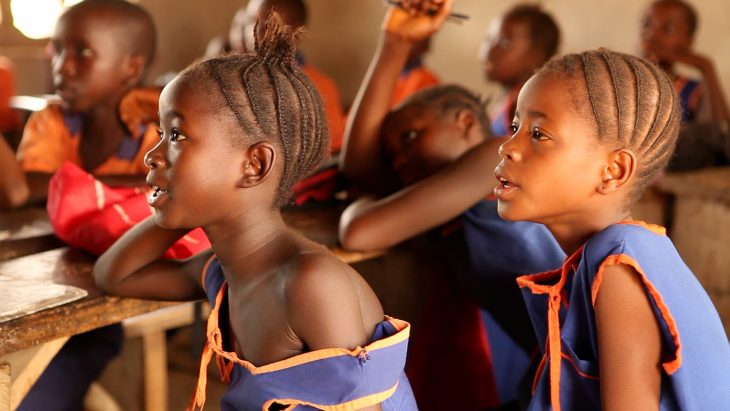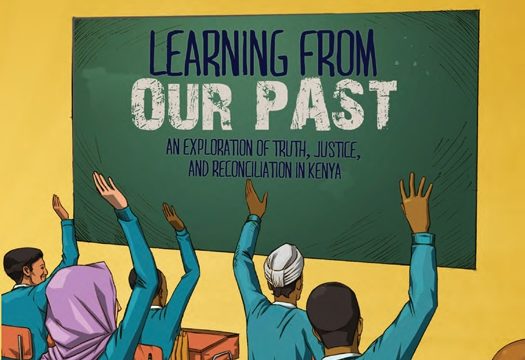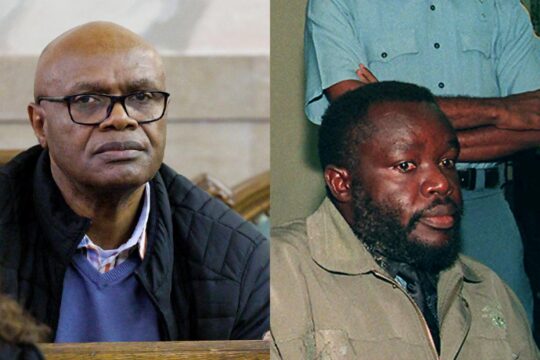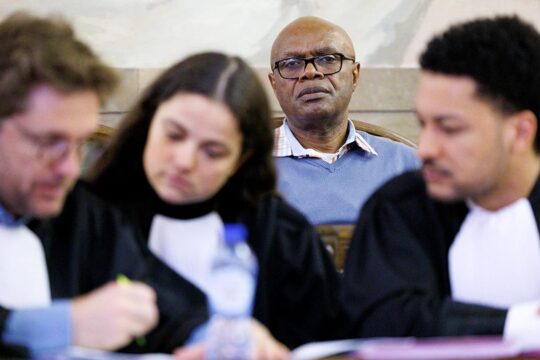In countries emerging from conflict or dictatorship, the risk of recurrence of violence is real. The way in which societies learn about and remember the past – how and why mass atrocity occurred – can enlarge or reduce this risk.
Reconstruction of a country’s education system can help prevent a return to violence and boost the legitimacy of democratic institutions. This contribution depends not only on rebuilding schools, bringing children and youth back into the system, and promoting values of tolerance and peace through curricula. It also depends, critically, on the sensitivity of these efforts to the legacies of past human rights abuses.
However, this capacity of education to transform societies grappling with legacies of troubled past is recognized as a threat by the ideologues of conflict and forces interested in perpetuating division and retaining supremacy of “our” truth over “theirs”. Often, they will relinquish control of all other institutions before they give up the education system.
Take the example of Bosnia and Herzegovina, as we mark the 20th anniversary of the Dayton Agreement that carved up its territory into ethnically controlled political entities.
Bosnia and Herzegovina just appointed Nikola Poplasen, a notorious former paramilitary leader of the Serbian Radical Party, to the executive board of the state Agency for the Development of Higher Education. Poplasen’s appointment is indicative of how education is handled in a country where the battle over the war narrative rages on; where children attend segregated primary schools; where the history books inevitably portray “us” as martyrs and heroes and “them” as villains and war criminals.
The results of such an approach to education are illustrated in a recent petition signed by hundreds of students of Belgrade Law Faculty (attended by many students from the Serb areas of Bosnia and Herzegovina). The petition urged Serbian Prime Minister Aleksandar Vučić not to attend the anniversary of the Srebrenica genocide because, they claimed, “genocide was invented to prevent reconciliation” and that such an act of acknowledgement would forever brand all Serbs as “genocidal.”
Almost none of these students were born when the Yugoslav war broke out. Their petition is a worrying sign of what they have learned in school, and elsewhere, about atrocities committed during the war. It points to unresolved conflict still brewing below the surface.
It takes no time to understand why political powers are so keen to retain control of education in post-repressive and post-conflict societies. As the Jesuit education mantra goes, “Give me the boy at seven and I will show you the man.” For those who want to maintain division and keep alive the hope of some future “victory,” control of the narrative and indoctrination of young minds are critical.
What is it that education can and should aim to do in societies dealing with an abusive or repressive past?
One simple answer is of course to not expect too much too quickly. The educational environment has to be a place where a culture of respect for difference is encouraged, where the concept of peaceful settlement of differences is engrained in the very notion of the citizen, and where individuals from different groups have equal access to the benefits of a quality education. That is necessarily a long-term process. Twenty years after apartheid, student protests over university education costs in South Africa demonstrate how the country is still dealing with inequalities rooted in an unjust past.
But there are shorter-term steps that can be taken. Where there has been an effort to acknowledge the past whether through a truth commission or criminal justice efforts, then it is important that information about those processes and their conclusions form part of the lessons shared with children and youth. At a minimum this begins to overcome cultures of denial.
Some positive examples of this exist.
The Special Court for Sierra Leone, as part of its outreach efforts, spoke to students in high schools and universities throughout the country to discuss ongoing trials—as did the International Criminal Tribunal for the Former Yugoslavia. In Peru the Truth and Reconciliation Commission had the foresight to engage with the education sector from the beginning, to look for ways to incorporate its work and conclusions into the education system. In Cote d’Ivoire, youth groups have organized truth-telling dialogues at the community level about the role of youth and schools in past violence.
These types of efforts will help future generations to know of the violence that ravaged their countries and the abuses of power of political leaders that led to systematic repression of many innocent people.
This kind of approach can contribute to curricular reform. Efforts to reform what is taught in history and social science classes are the subject of fraught debate, even in “peaceful” societies. The recent debate on reform of the history curriculum in England that proposes a much more positive approach to its imperial past is an example of how controversial such issues can be.
Establishing agreed-upon versions of history and teaching them in deeply divided societies is likely to be the fruit of long social and political negotiation, rather than a starting point.
Acknowledging the past through truth telling and trials and through reforming education systems alone will not ensure that societies overcome their divisions. But thinking about education as an integral part of responding to past injustice is an important step toward the kind of change that may make it possible.






